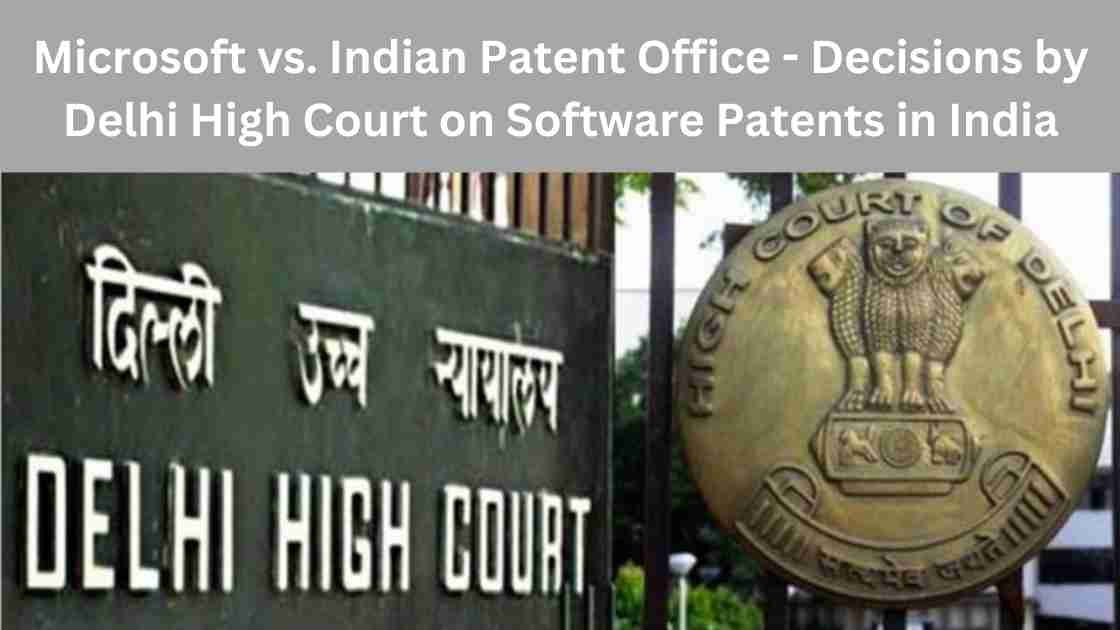Author: Harish Naidu

Recent FAQs Published by the Indian Patent Office on Form 27
The Indian Patent Office recently released a comprehensive FAQ document regarding Form 27, aimed at clarifying the requirements and procedures for patentees and licensees in India. Form 27 is a statutory requirement under Section 146(2) of the Patents Act, 1970, and Rule 131(1) of the Patents Rules, 2003, mandating the submission of a statement concerning the commercial working of a patented invention in India. Key Highlights: Who Needs to File? Every patentee and licensee in India must file Form 27, either individually or through an authorized patent agent or attorney. A single form can cover multiple patents, provided they are related and granted to the same patentee(s). Filing Timeline and Extensions: Form 27 should be filed once every three financial years, starting from the financial year following the patent grant. The deadline can be extended up to nine months upon filing appropriate requests under the relevant rules. Consequences of Non-Compliance:…

A Comprehensive Guide to Patent Searches: Types, Examples, and When to Use Them
Patent searches are a crucial aspect of the patenting process. Whether you're an inventor, entrepreneur, or a legal professional, understanding the different types of patent searches and knowing when to use them can save you time, resources, and help you make informed decisions. This blog post will guide you through the various types of patent searches, provide examples, and explain the scenarios in which each search type is most applicable. What is a Patent Search? A patent search is a comprehensive search of existing patents and published patent applications to determine whether an invention is novel and non-obvious, which are key requirements for obtaining a patent. These searches are also used to assess the patentability of an invention, identify potential infringement risks, and understand the competitive landscape. Types of Patent Searches Novelty Search (Patentability Search) Purpose: The primary objective of a novelty search is to assess the patentability of an…

Understanding the Requirements for Composition Patents under Indian Patent Law
Composition patents are critical in industries such as pharmaceuticals, chemicals, and materials science, where innovative mixtures of substances lead to new and useful products. In India, obtaining a patent for a composition involves satisfying specific requirements laid out under the Indian Patent Law, particularly focusing on aspects like novelty, inventive step, sufficient disclosure, and ensuring that the patent does not fall under certain prohibitive sections, including Section 3(e). This blog post delves into these requirements in detail, along with relevant examples, to provide a comprehensive understanding of what it takes to secure a composition patent in India. Novelty: The Foundation of Patentability Example: Suppose a company develops a new adhesive composition that includes a novel combination of a known polymer and a specific ratio of a curing agent. If no previous patent or publication describes this exact combination, the composition is considered novel. However, if a prior patent or research…

Non-Patentable Subject Matter Under Section 3 of the Indian Patents Act, 1970
The Indian Patents Act, 1970, outlines the framework for granting patents and specifies the types of inventions that are patentable in India. A crucial aspect of this Act is Section 3, which enumerates various categories of inventions that are not patentable. Understanding these exclusions is essential for inventors, legal practitioners, and businesses seeking patent protection in India. This article delves into the intricacies of Section 3, highlighting the non-patentable subject matter and providing insights into the rationale behind these exclusions. Section 3 of the Indian Patents Act, 1970 Frivolous or Contrary to Natural Laws (Section 3(a)) Inventions that are frivolous or claim something obviously contrary to well-established natural laws are not patentable. Example: A machine claimed to generate energy without any input (a perpetual motion machine) would be excluded from patentability because it contradicts the law of conservation of energy. To become patent-eligible, the invention could be modified to operate…

Celebrating Innovation: National Intellectual Property Awards 2024
Innovation and creativity are the lifeblood of progress, and intellectual property (IP) is the tool that protects and nurtures these assets. Recognizing and rewarding excellence in this arena, the National Intellectual Property (IP) Awards 2024 are set to honor individuals, institutions, and enterprises that have significantly contributed to strengthening the IP ecosystem in India. These awards are not just about acknowledging past achievements; they aim to inspire future innovation and effective IP management. The primary objective of the National IP Awards is to encourage the creation and commercialization of intellectual property. By doing so, these awards aim to promote an environment where innovation thrives, leading to economic growth and a stronger IP ecosystem in the country. The awards highlight the strategic use of IP in various industries, showcasing how effective IP management can drive success. Categories of Awards This year, the awards will be presented across 13 distinct categories, covering…

Recent FAQs Published by the Indian Patent Office on Form 27
The Indian Patent Office recently released a comprehensive FAQ document…

A Comprehensive Guide to Patent Searches: Types, Examples, and When to Use Them
Patent searches are a crucial aspect of the patenting process.…

Microsoft vs. Indian Patent Office – Decisions by Delhi High Court on Software Patents in India
The part of this series focuses on the…

Case in Point: Sun Pharma Ltd vs. DWD Pharma Ltd
Case in Point is a new series where…
Categories
Recent Discussions
Recent FAQs Published by the Indian Patent Office on Form 27
The Indian Patent Office recently released a comprehensive FAQ document regarding Form 27, aimed at clarifying the requirements and procedures for patentees and…
Recent Discussions
A Comprehensive Guide to Patent Searches: Types, Examples, and When to Use Them
Patent searches are a crucial aspect of the patenting process. Whether you're an inventor, entrepreneur, or a legal professional, understanding the different types…
